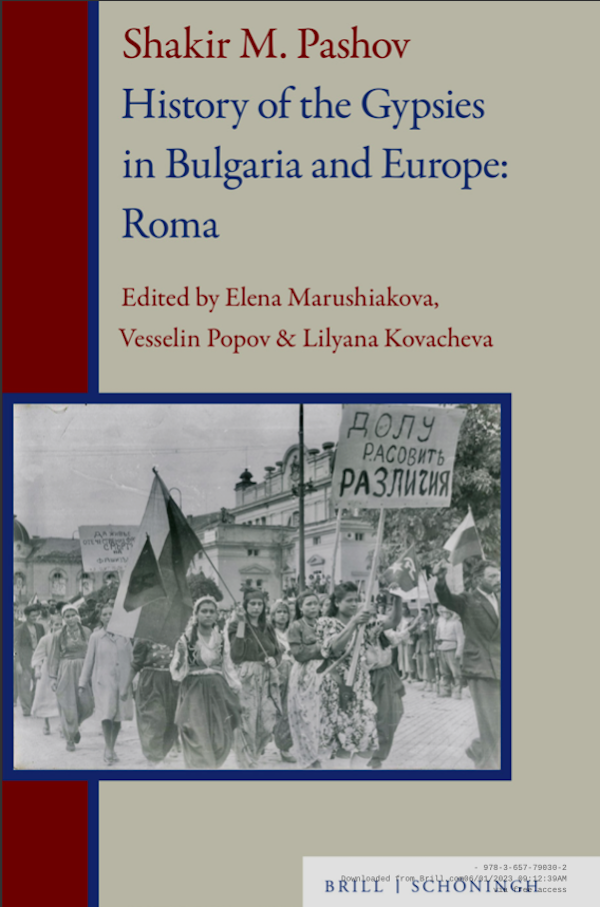The international academic publisher Brill published Shakir M. Pashov‘s book entitled History of the Gypsies in Bulgaria and Europe: Roma. The editors of the book are Elena Marushiakova, Vesselin Popov and Lilyana Kovacheva.
This book is written and published as a part of the research project Roma Interbellum: Roma Civic Emancipation between the Two World Wars, which was funded by the European Research Council (ERC), under the European Union’s Horizon 2020 Research and Innovation Programme.
As stated in the foreword of the book, it is the first publication from the Roma History and Culture Book Series. The Series’s overarching goal is to incorporate Roma history and culture into the mainstream of European and global academia. To achieve this goal, the Roma History and Culture Book Series will publish books from a wide range of disciplines that offer innovative, critical, and, above all, reliable insights into the history and culture of the Roma (formerly known as ‘Gypsies’), relying on critical rereading and rethinking of historical sources and existing research.
This approach marks a critical turn in the academic studies of Roma history and culture. This scientific field had been blighted by myths, stereotypes and misinterpretations all too often in the past, which created serious obstacles for the development of modern academic knowledge as a field in its own right.
The Series challenges the prevailing academic narratives, which present the Roma as a disengaged, marginalised community, a passive object of governmental policies, by analysing and contextualising the agency of Roma as actors in their own right, with their own views and visions for the development of their communities. In this way, the books published in the Roma History and Culture Book Series contribute to making the Roma voices heard and to understanding the Roma views. This approach is conducive to the incorporation of the Roma past and present into the mainstream of European and global academia rather than the confinement of Roma history and culture into a narrowethnic box as a kind of academic ghetto, Elena Marushiakova, Vesselin Popov and Sofiya Zahova, editors of the series, state in the foreword.
The author has taken all information and data from foreign and Bulgarian authors, as well as from legends and myths, the real value of which he studied for a long time. In addition, he also used folk folklore – tales, songs, proverbs, riddles, customs, religious rites and manners.
For the editors of the series, the fact that the Roma History and Culture Series begins Shakir Pashov’s book History of the Gypsies in Bulgaria and in Europe: Roma is of particular, even symbolic importance:
In recent years, a false stereotype has developed in academic work on the subject. It holds that for the history of the Roma, it is not necessary to know and use written historical sources because they are written by non-Roma and do not allow the voice of the Roma to be heard in history. The proponents of this theory insist on prioritising the oral history of the Roma. This mantra can be heard everywhere, and it is a direct consequence of another equally wide- spread false premise, namely that the Roma civil emancipation movement is a product of our time, and the Roma elite is a creation of the age of modern neoliberalism.












